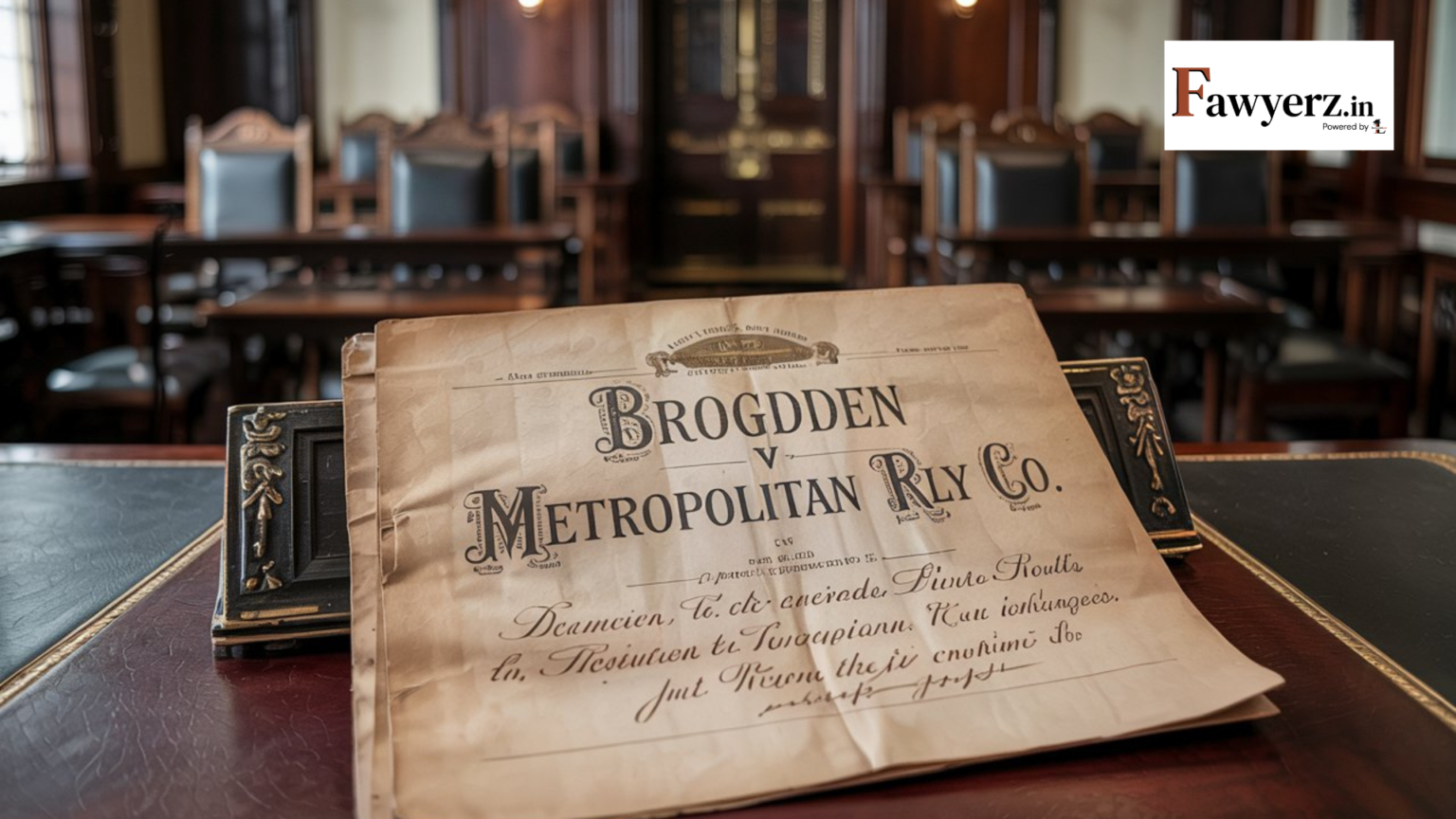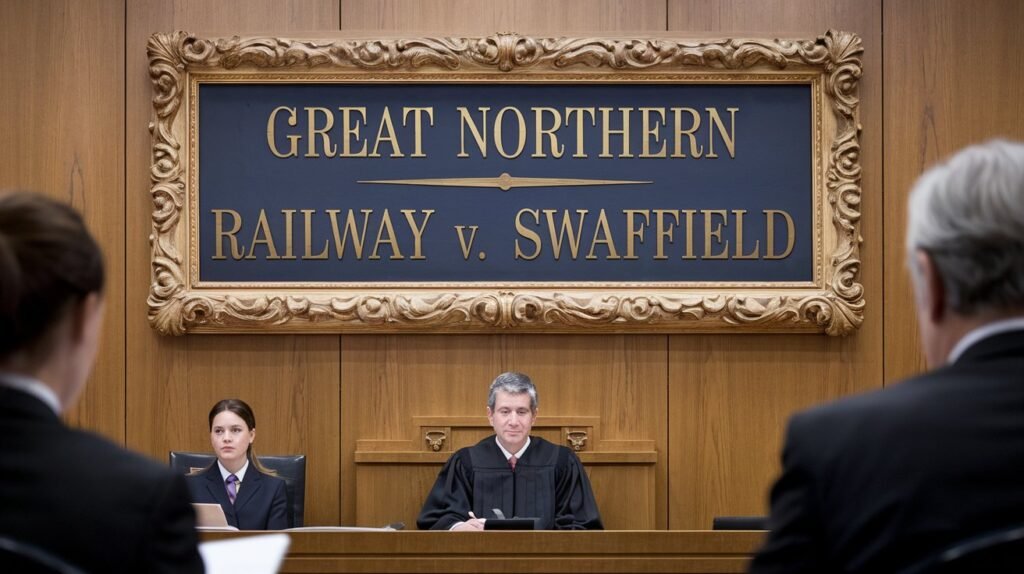Brogden v. Metropolitan Railway Company 1877 (Case Summary)

The case involves a long-standing commercial arrangement where parties sought to formalize their dealings through a written contract. Despite no express acceptance being communicated, both parties acted in accordance with the modified terms, raising the question of whether such conduct constituted a valid contract.
Table of Contents
ToggleFacts of Brogden v. Metropolitan Railway Company
- The Appellant, Borgden (original defendant) had been supplying coal to the Respondent company (original Plaintiff), for several years without a formal written contract.
- Eventually, both parties mutually agreed to enter into a formal written contract.
- The Respondent prepared a draft agreement and sent it to the Appellant.
- Upon receipt, the Appellant inserted certain particulars, endorsed the draft with the word “approved,” and sent the modified draft agreement to the Respondent.
- Despite the lack of express communication, both parties proceeded to carry out their obligations under the modified draft. The Appellant continued to supply coal and the Defendant made payments as per the terms of the modified agreement.
- A dispute subsequently arose, the Appellant refused to continue supplying coal in accordance with the agreed terms, thereby causing the Respondents to initiate an action for damages for breach of contract.
- The Appellant contended that no valid contract had been formed due to the absence of formal communication of acceptance, to avoid the existence of any contractual obligations.
Issues framed
- Whether express communication of acceptance is necessary for a contract to be valid?
- Whether performance by both the parties in accordance with the modified agreement’s terms amounts to acceptance and thereby creates a valid contract?
Subordinate Court Judgment
The Court of Common Pleas held that a binding contract had been formed through the parties’ conduct, despite the absence of formal acceptance, brogden had breached the Contract. It decided in favour of the Respondent company and awarded damages of £9,643.
Brogden Appealed to the Court of Appeal, which upheld the lower court’s decision and dismissed the Appeal.
The Appellant then appealed to the House of Lords.
Judgment of Brogden v. Metropolitan Railway Company
The House of Lords analysed the established principles of English contract law – requirement of a valid contract, types of acceptance and concept of counter-offer.
The House of Lords observed that the modified draft sent by Appellant constituted a counter-offer. Although the Respondent did not expressly communicate its acceptance of the said counter-offer, the subsequent conduct of the parties, acceptance of coal deliveries and payment on the terms of the modified draft demonstrated a clear mutual assent. The conduct amounted to an implied acceptance of the offer.
Lord Blackburn held that “where both parties have acted on a draft and treated it as binding, it is enforceable in law.” Lord Hatherly concurred, indicating that “the agreement became operative when the Defendant paid for coal at the revised price provided in the draft.” Performance of the agreement’s conditions, without any reservations or objections by either party, was deemed to constitute unequivocal acceptance, thereby resulting in the formation of a valid and legally binding contract.
The House of Lords upheld the Court of Appeal’s judgement in favour of the Respondent company, holding that a valid contract had been formed between the Appellant, Brogden and the Respondent company, notwithstanding the absence of formal communication of acceptance. The mutual conduct of the parties, demonstrating performance under the agreed terms, was deemed sufficient to establish acceptance by conduct, thereby giving rise to an enforceable contractual obligation.





